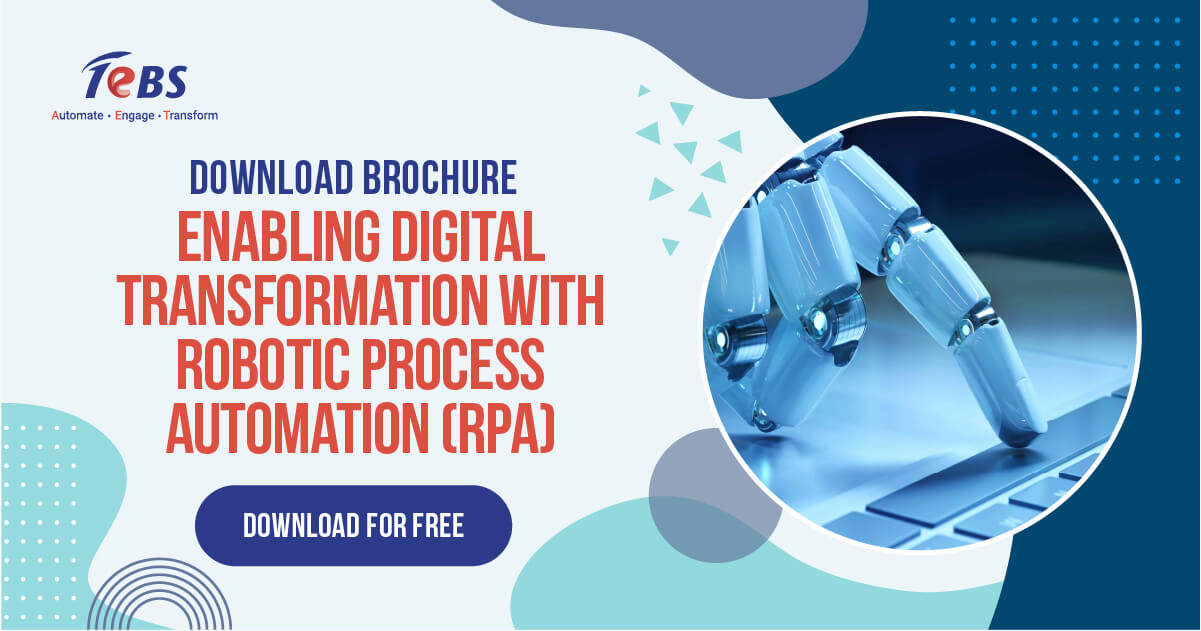RPA Digital Transformation In Singapore

Singapore is a global leader in the adoption of robotic process automation (RPA), a technology that uses software robots to automate repetitive and rule-based tasks. RPA is playing a pivotal role in Singapore’s digital transformation journey, helping businesses and government agencies to improve efficiency, productivity, and customer service.

The Singapore government has been a strong advocate for RPA, recognizing its potential to transform the economy. In 2024, the government launched the Smart Nation initiative, which aims to make Singapore a leading digital economy. RPA is a key component of the Smart Nation initiative, and the government has invested heavily in promoting its adoption.

As a result of government support, RPA has become widely adopted in Singapore. A 2024 study by EY found that 70% of businesses in Singapore had implemented RPA. RPA is being used in a variety of sectors, including banking, finance, insurance, healthcare, and manufacturing.
RPA is delivering significant benefits to businesses in Singapore. According to EY, businesses that have implemented RPA have seen an average reduction in costs of 25%. RPA has also helped businesses to improve productivity by 30% and customer service by 20%.
In addition to businesses, RPA is also being adopted by government agencies in Singapore. The government is using RPA to automate a variety of tasks, such as processing applications, issuing licenses, and managing data. RPA is helping government agencies to improve efficiency and reduce costs.
The adoption of RPA in Singapore is expected to continue to grow in the coming years. RPA is a powerful tool that can help businesses and government agencies to improve efficiency, productivity, and customer service. As more businesses and government agencies recognize the benefits of RPA, adoption is expected to accelerate.
Here are some specific examples of how RPA is being used in Singapore:
- DBS Bank, Singapore’s largest bank, has implemented RPA to automate a variety of tasks, including processing loan applications, issuing credit cards, and managing customer accounts. RPA has helped DBS to reduce costs by 20% and improve customer service by 15%.
- Singtel, Singapore’s largest telecommunications company, has implemented RPA to automate a variety of tasks, including processing customer orders, managing billing, and providing technical support. RPA has helped Singtel to reduce costs by 30% and improve customer service by 25%.
- The Singapore government has implemented RPA to automate a variety of tasks, including processing applications for visas, issuing licenses, and managing data. RPA has helped the government to improve efficiency and reduce costs by 20%.RPA Digital Transformation In Singapore
Executive Summary
Robotic process automation (RPA) is a key technology enabling the digital transformation of businesses in Singapore and around the world. RPA software makes rules-based tasks automated, thereby enhancing efficiency, accuracy, and cost reduction. Singapore is taking a leading role in RPA adoption, because government agencies and businesses recognize the many potential benefits of RPA implementation.
Introduction
In today’s digital age, businesses are under increasing pressure to transform their operations to remain competitive. Enterprises can automate repetitive and time-consuming tasks by adopting RPA solutions, empowering them to become more productive and efficient. This blog post will explore the key benefits and applications of RPA, providing insights into how businesses in Singapore can leverage this transformative technology to drive growth and innovation.
FAQ
What is RPA?
RPA is an advanced software technology that enables the automation of repetitive manual tasks across digital systems and applications.
How does RPA benefit businesses?
- Enhanced efficiency and reduced operational costs
- Improved accuracy and reduced errors
- Faster processing times and increased productivity
- Enhanced compliance and improved data security
- Freed up human resources for more strategic tasks
What industries can benefit from RPA implementation?
RPA can be applied across various industries, including banking and finance, healthcare, insurance, manufacturing, retail, and logistics, among others.
Top 5 Subtopics
1. RPA in Banking and Finance
RPA is transforming the banking and finance sector in Singapore by automating tasks such as:
- Account opening and closing
- Data entry and processing
- Fraud detection and prevention
- Risk assessment and management
- Report generation and analysis
2. RPA in Healthcare
RPA is also playing a vital role in the Singaporean healthcare industry by:
- Automating patient registration and scheduling
- Digitizing patient records
- Processing insurance claims
- Managing inventory and supplies
- Generating reports and dashboards
3. RPA in Insurance
The insurance industry in Singapore is also reaping the benefits of RPA implementation by automating critical tasks like:
- Policy issuance and renewal
- Claims processing
- Underwriting and risk assessment
- Regulatory compliance
- Customer service and support
4. RPA in Manufacturing
manufacturers in Singapore leverage RPA for various purposes, including:
- Supply chain management and inventory control
- Production planning and scheduling
- Quality control and inspection
- Predictive maintenance and downtime reduction
- Data analytics and reporting
5. RPA in Retail
The retail industry in Singapore benefits from RPA adoption through automated tasks such as:
- Order processing and fulfillment
- Inventory management and replenishment
- Customer support and engagement
- Data analytics and forecasting
- Pricing and promotion management
Conclusion
RPA has the power to revolutionize businesses in Singapore. By automating repetitive and time-consuming tasks, RPA increases efficiency, reduces costs, enhances accuracy, and frees up employees to focus on more strategic initiatives. Singapore is at the forefront of RPA adoption, as various government agencies and businesses recognize the transformative potential of this technology. By leveraging RPA, organizations can remain competitive, achieve operational excellence, and drive innovation in a dynamic and rapidly evolving digital landscape.
Relevant Keyword Tags
- RPA
- Digital transformation
- Automation
- Singapore
- Business efficiency
